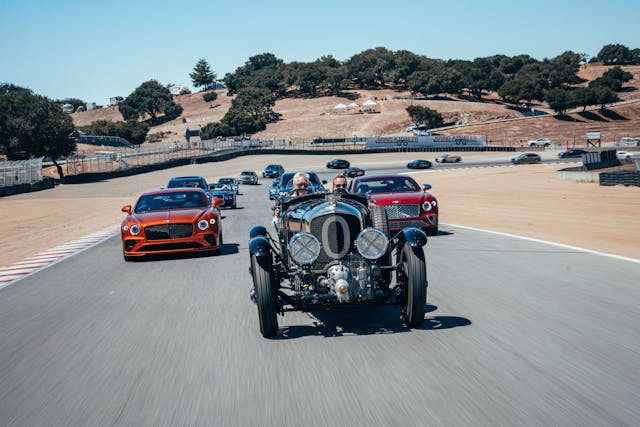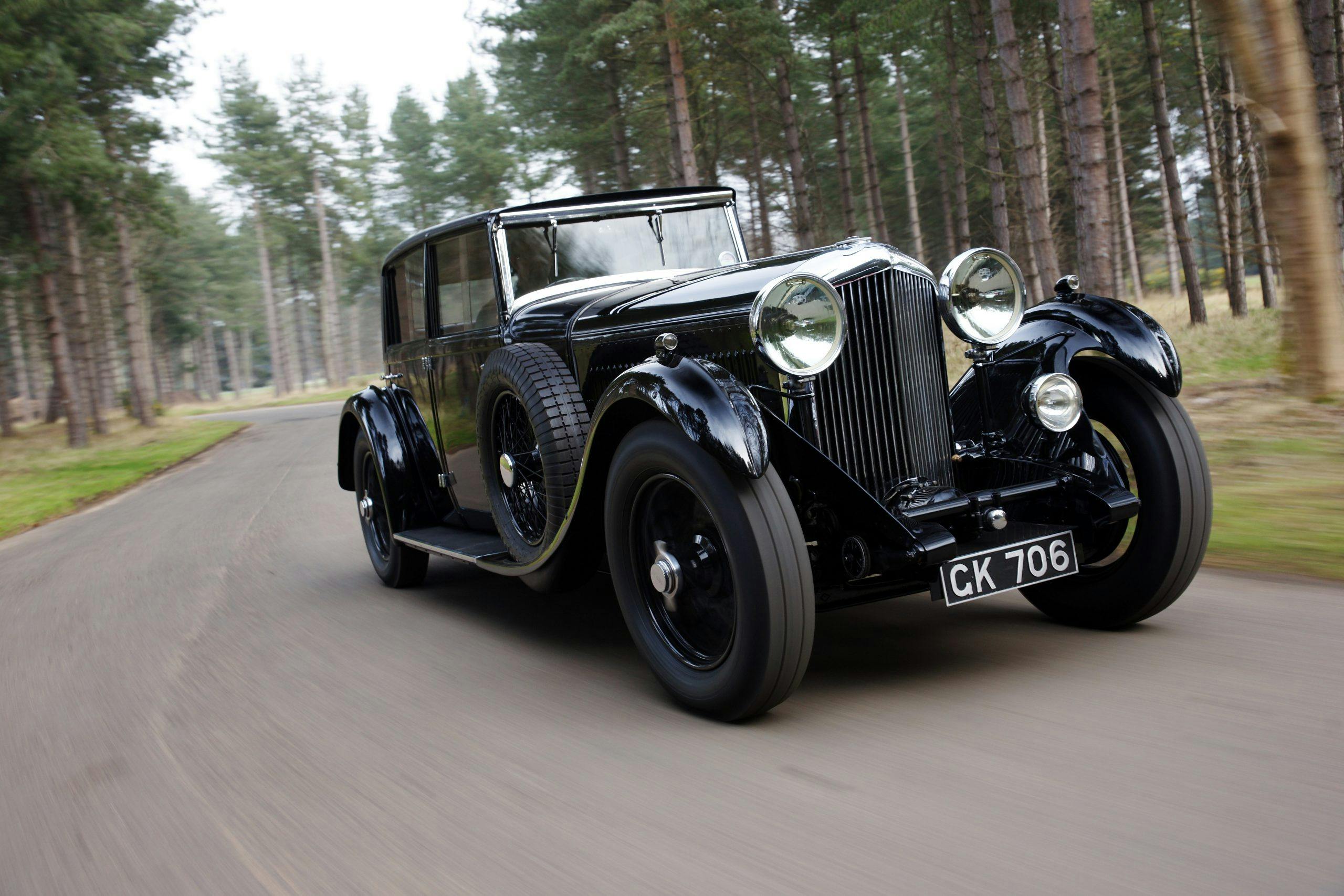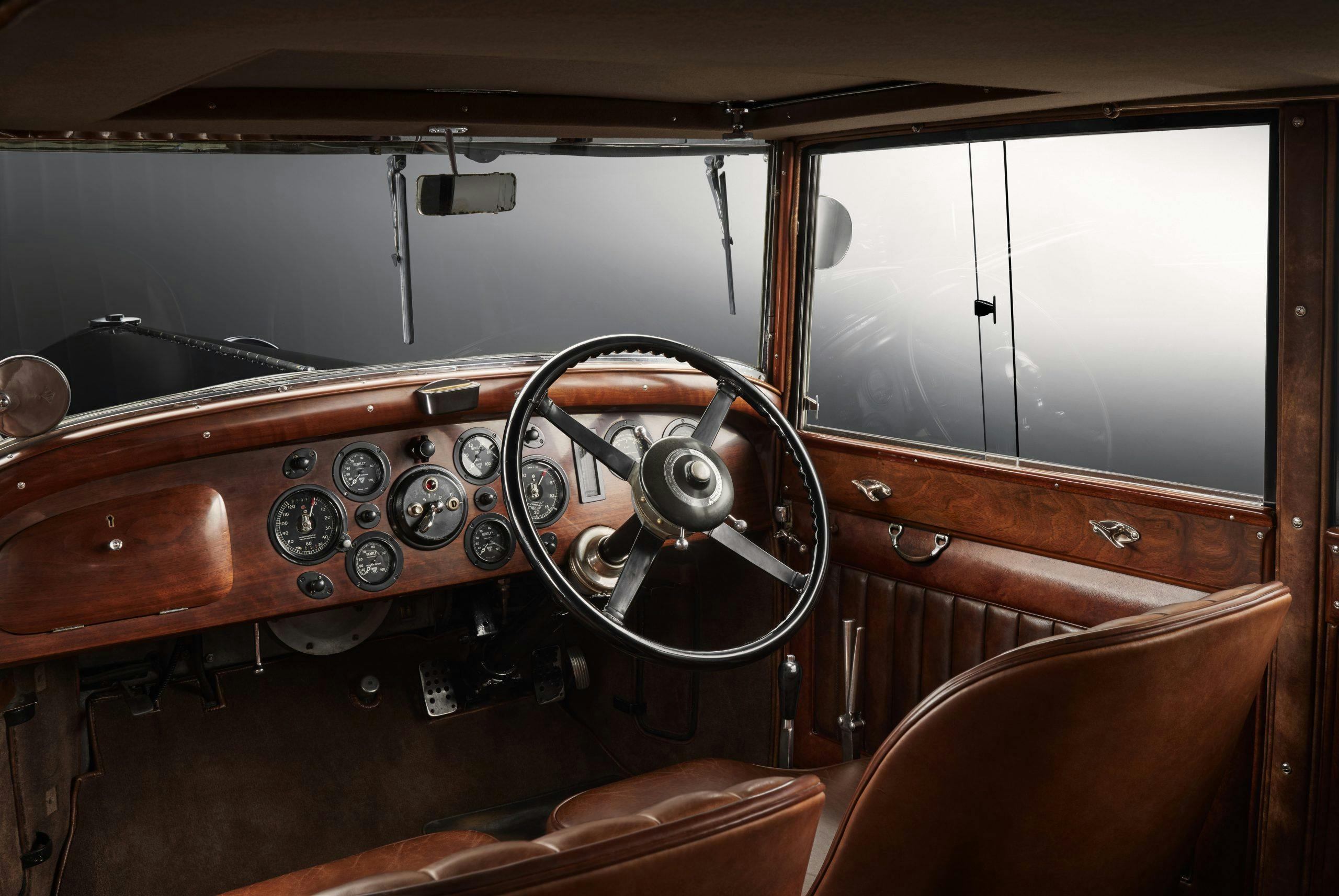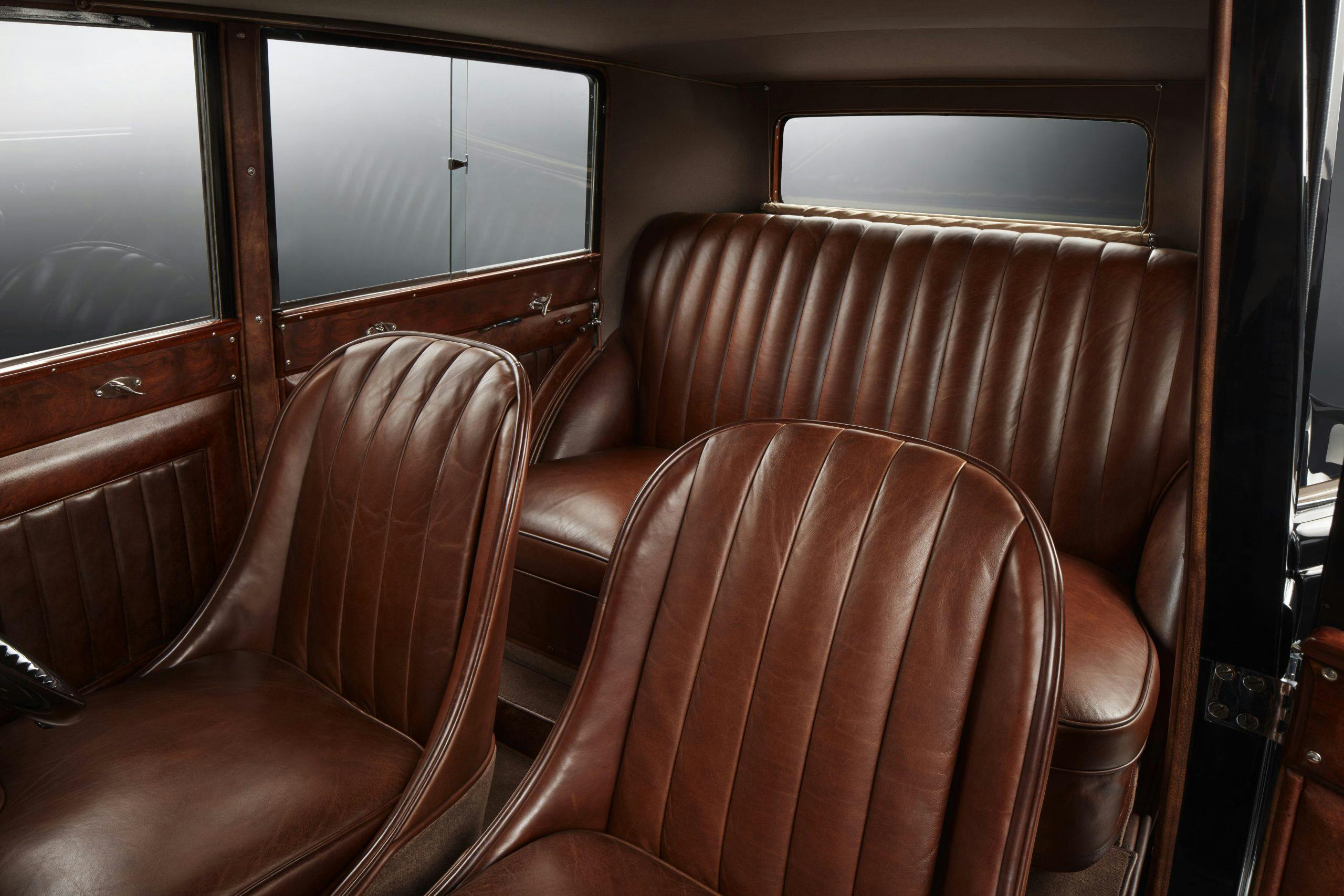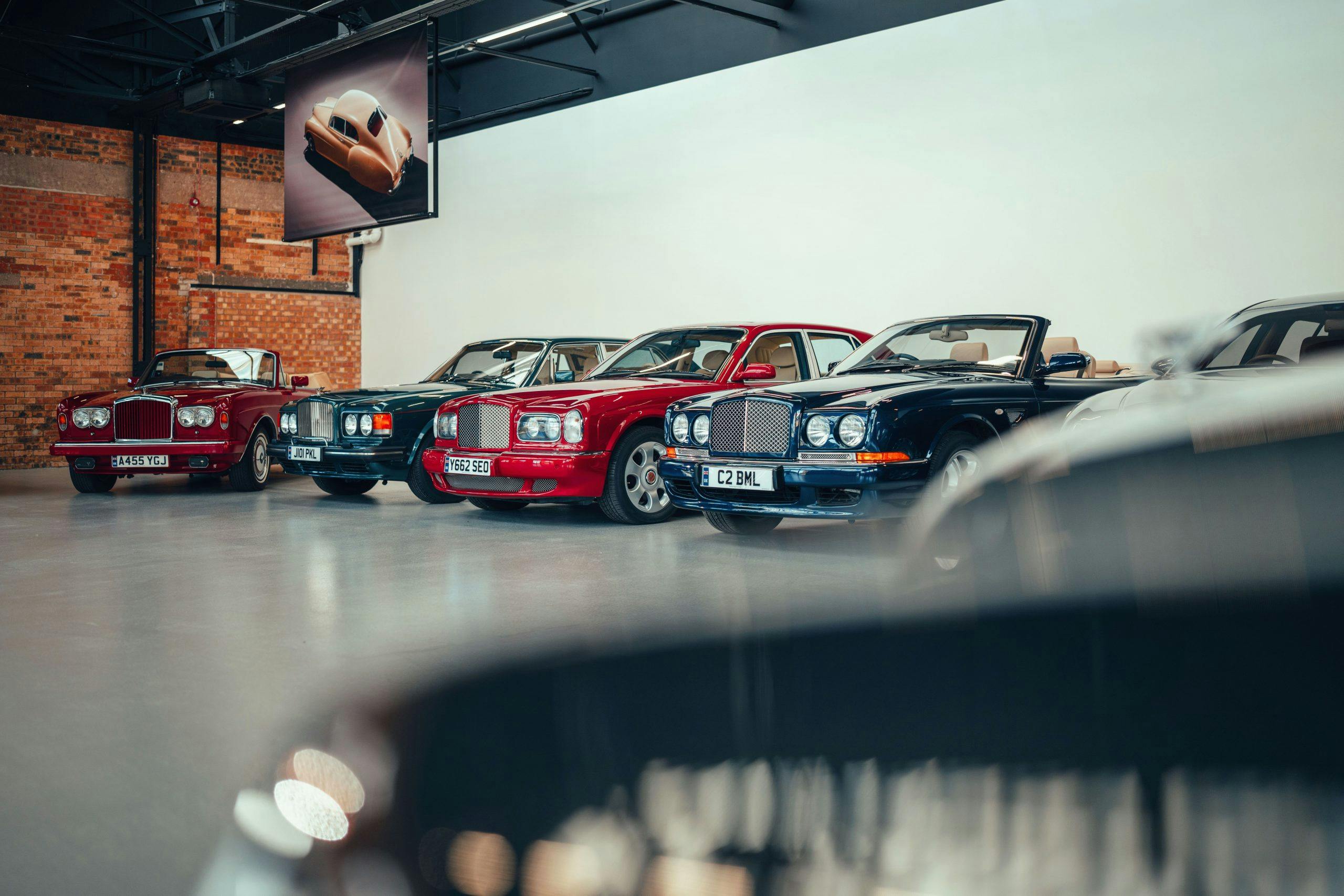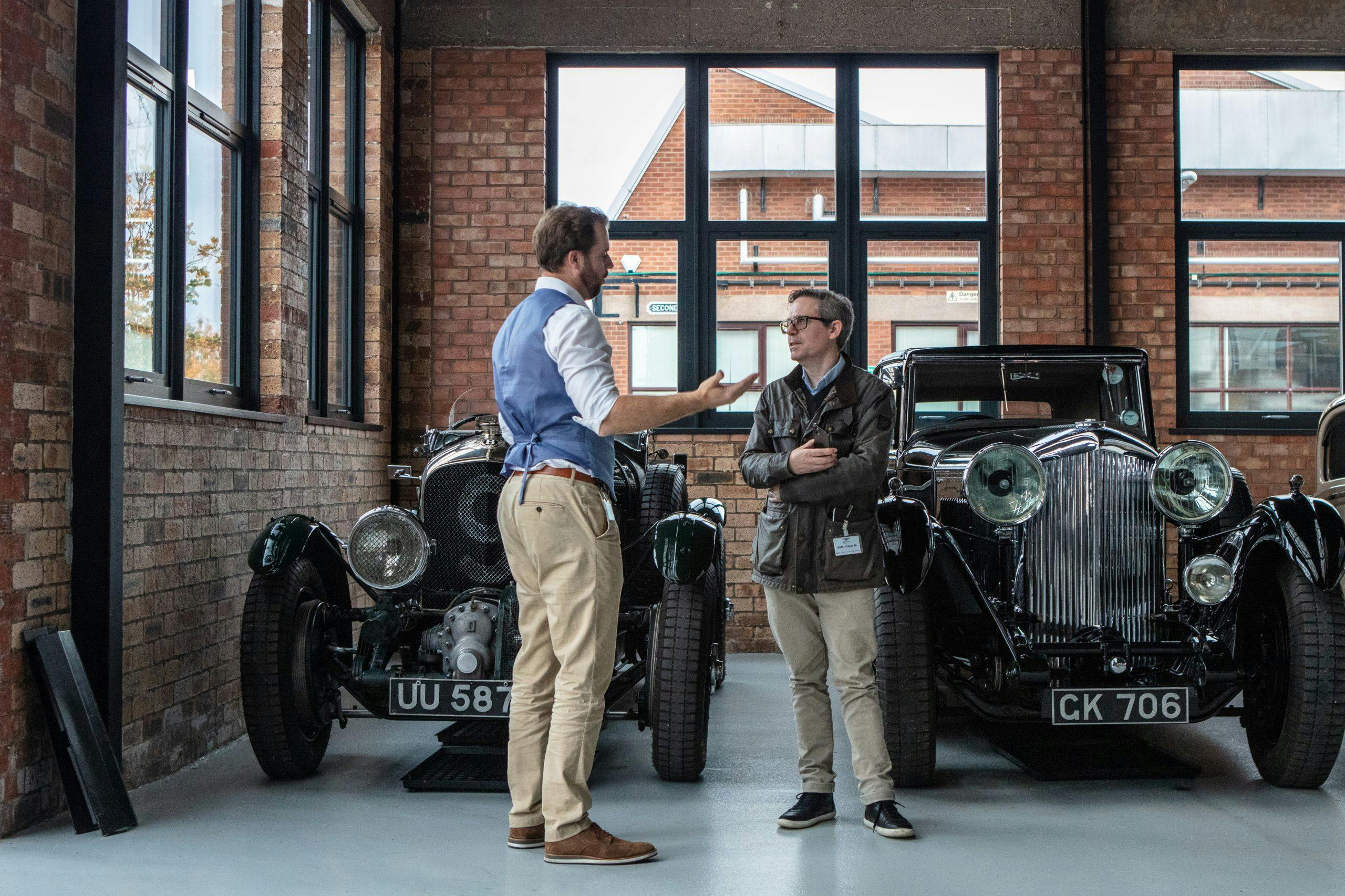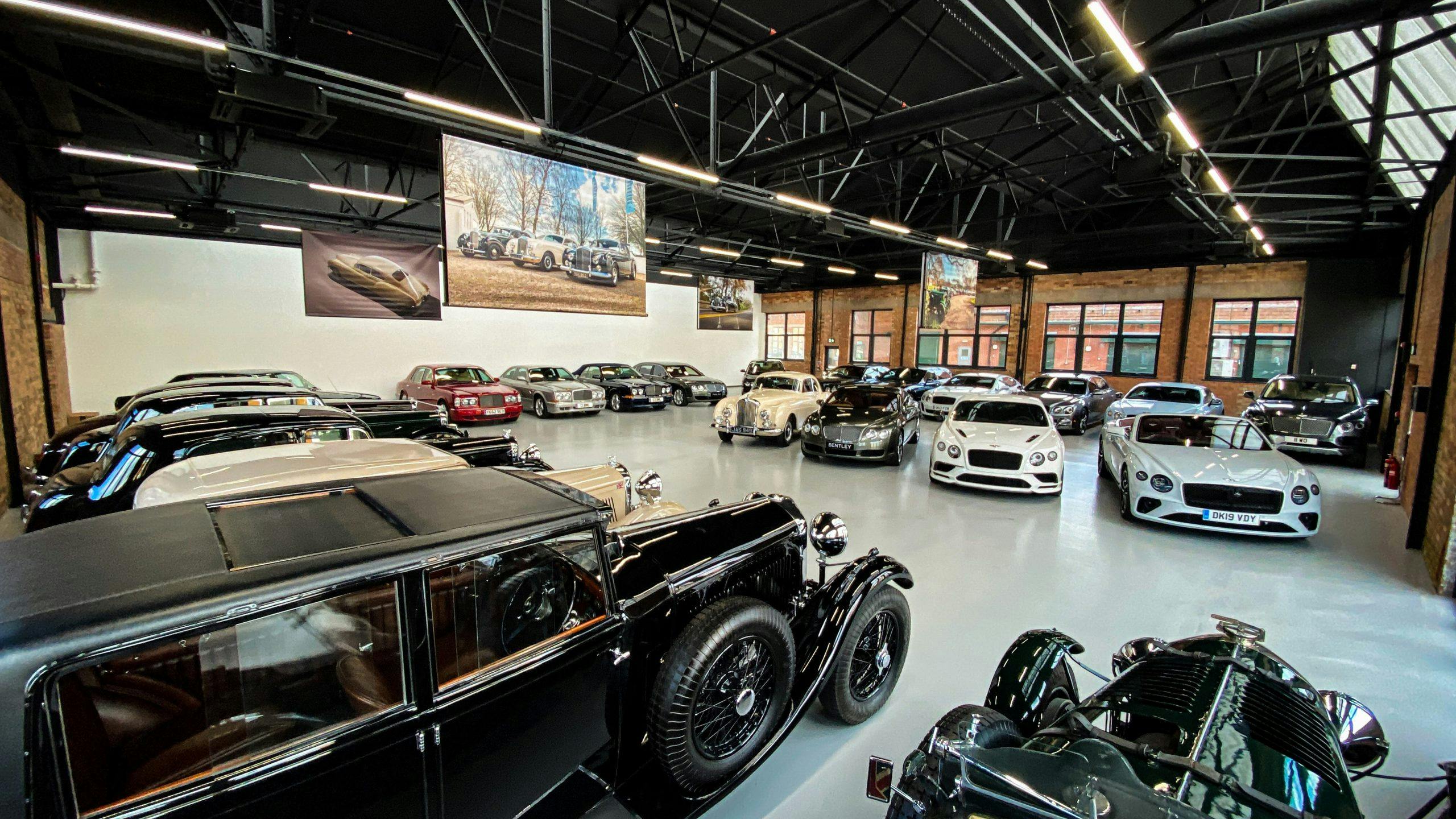Looking after Bentley’s Heritage Collection might be the best job in the world
Within a couple of languid turns of the starter motor, the eight-liter, six-cylinder engine erupts into life. The thunder from of this jet-black 1930 Bentley Mulliner saloon is like no other, such that W.O. Bentley himself would enjoy it on a daily basis. This exact 7938-cc flagship was once his company car.
“All cars should sound like this,” says Mike Sayer, beaming from behind the gargantuan steering wheel. Off we head down the lanes of Bentley’s home in Crewe, U.K., the majestic hood stretching out towards a vanishing point capped with the famous Flying B. We ride a tsunami of torque in fourth gear, and Sayer only really has to execute deft double-declutch shifts when we stop or start.
As curator of the company’s Heritage Collection, Sayer might just have the best job in Bentley. Perhaps even the world.
W.O.’s personal Bentley is valued at over $4 million, but Sayer shows no concern. He keeps up with traffic, even eschewing hand signals; the car is so imposing that other road users are either understanding or possibly too frightened not to yield to its movements.
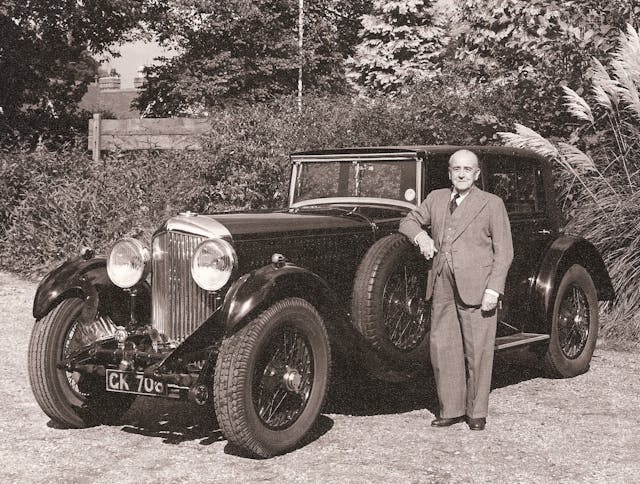
“This is the one that I feel the most emotional about driving because it was W.O.’s own car, he drove this car for two years in 1930 and 1931,” he says. “So when I sit behind the wheel of this car, and grip the wheel, the same steering wheel he held, and the company that bears his name has employed me for 16 years, it’s always a moment to cherish.”
We return to the Heritage Garage at the factory and Sayer backs the 8-liter into position next to the 1929 Team Blower number two, the most famous and most valuable Bentley in the world, which, were it ever to reach the open market, would fetch more than $20 million.
Forming a semi-circle, in what was once an office building which dates back to 1938 when Bentley first moved to Pym’s Lane from Cricklewood, North London, are some of the most important cars of the firm’s first century.
Among them are a 1939 Mark V, a 1952 R Type Continental, a 1963 S3, a 1984 Continental, a ’91 Turbo R, 2001 Arnage, and a selection of more modern cars from the very first 2003 Continental GT to a 2021 GT Speed. In total 34 road cars and eight racing cars form the collection, and all will ultimately be driveable, although several are still undergoing restoration.
“My view is that if a car is locked up and undrivable it’s no longer a car. It’s a machine without a purpose. So that’s why one of the golden rules for this place is that we’re going to take these cars, and register them all, including the very first Continental GT which has lived for 20 years and never been driven on the road. We want to fix that and give it back its purpose,” explains Sayer.
Who will drive them? Well, some fortunate journalists (tune in next week), and VIP guests will be allowed behind the wheel, plus they’ll be offered to dealers around the world to showcase the brand’s history.
“Our 1958 S1 S Flying Spur car has been in Europe for six weeks and they’ve done loads of things with it. The whole point of keeping the collection running is that it’s not a museum, the cars are a dynamic, usable asset that can help tell the story of the brand.”
Building the collection has involved scouring the factories darkest corners as well as shopping in the open market.
“When I took over there was a big hole from 1955 to 2002, so we bought the cars to fill that gap, but we also found the very first T-Series from 1965 in one of our warehouses. The last car we bought was a 1960 S2 Drophead which turned up in Northern France. It’s one of only 15 and is mechanically very sound, but needs some cosmetic work,” adds Sayer.
Looking after the cars is one full-time heritage specialist, master technician Keith Downey, supported by other in-house experts and external suppliers. “Keith has been working either for Bentley or on Bentleys for at least 30 years. So from mid ’80s, up to early 2000s he knows the cars inside out and upside down. For the more modern cars, we’ve got plenty of guys here and when we get to the older cars Keith still knows a great deal about them so he can do the general maintenance that keeps these cars happy. When we get into specialist jobs, then we rely on three different specialist companies to help out as well.”
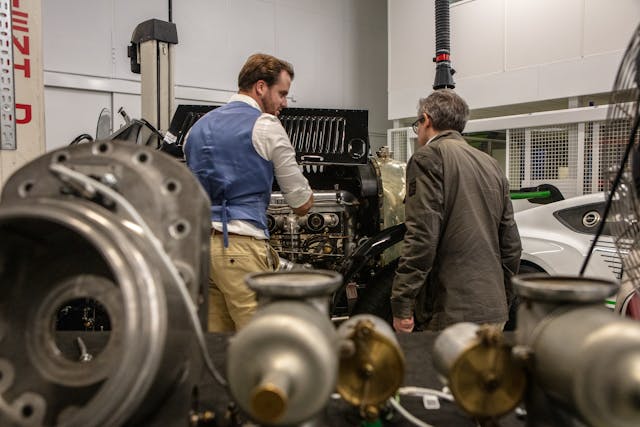
I get a first-hand look at the in-house expertise in a workshop where a dozen Blower Continuation cars are being assembled. Alongside them is a 1929 Speed Six, currently with its engine out, and a Continental GT3 race car awaiting a rebuild. Also present is the Blower Continuation Car Zero, fresh from Goodwood with Sayer’s name on a door sticker alongside CEO Adrian Hallmark.
“This car is amazing. It’s done 10,000 miles now, and at Monterey Car Week it was my daily driver. I used it every day for two weeks,” says Sayer.
There really can’t be many jobs better than this can there?
